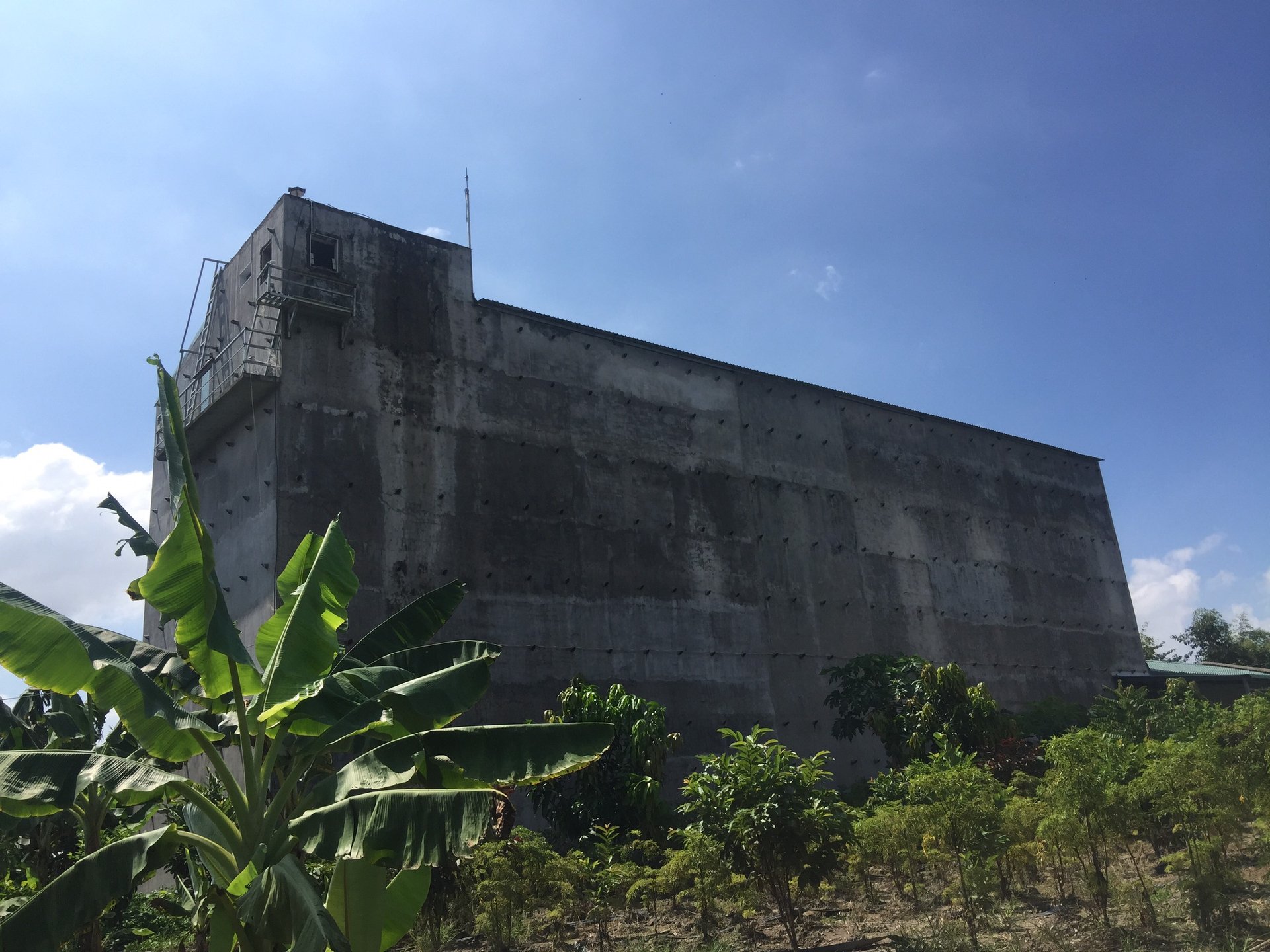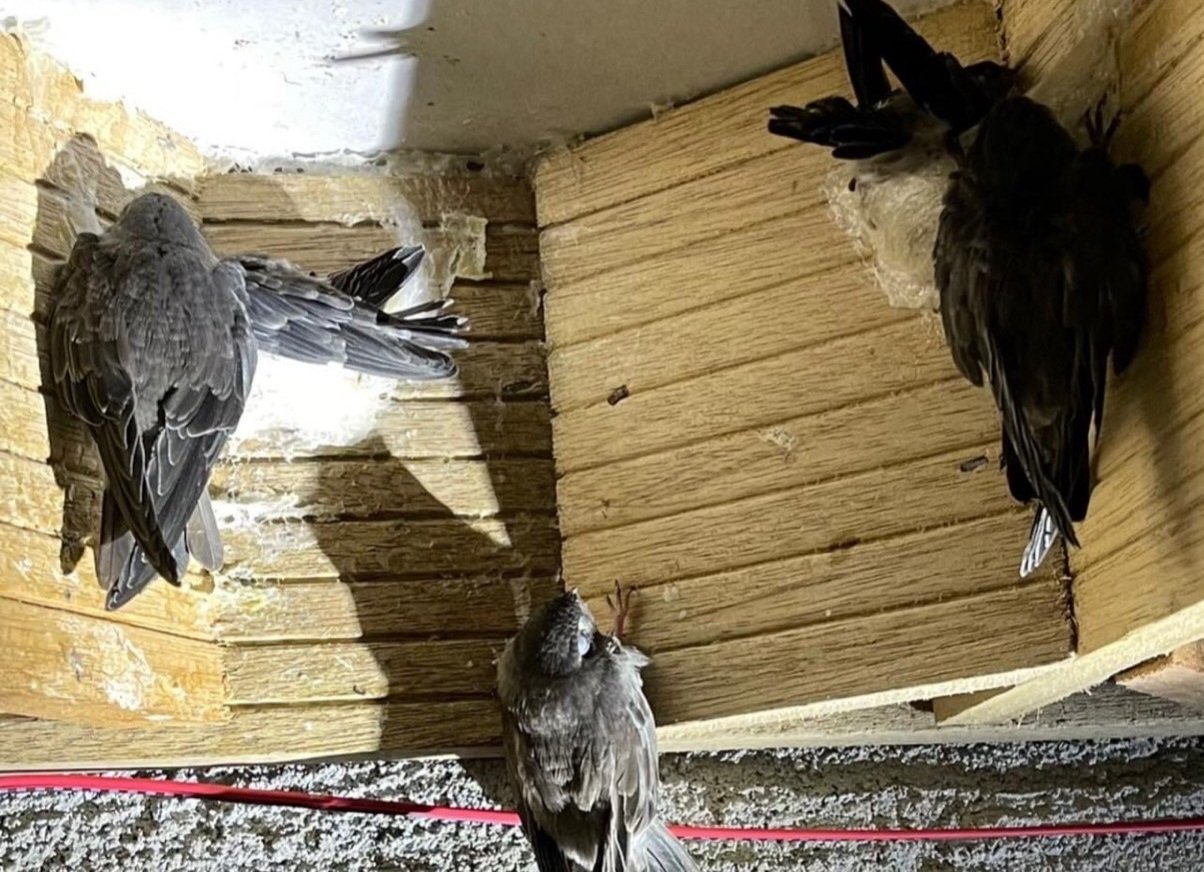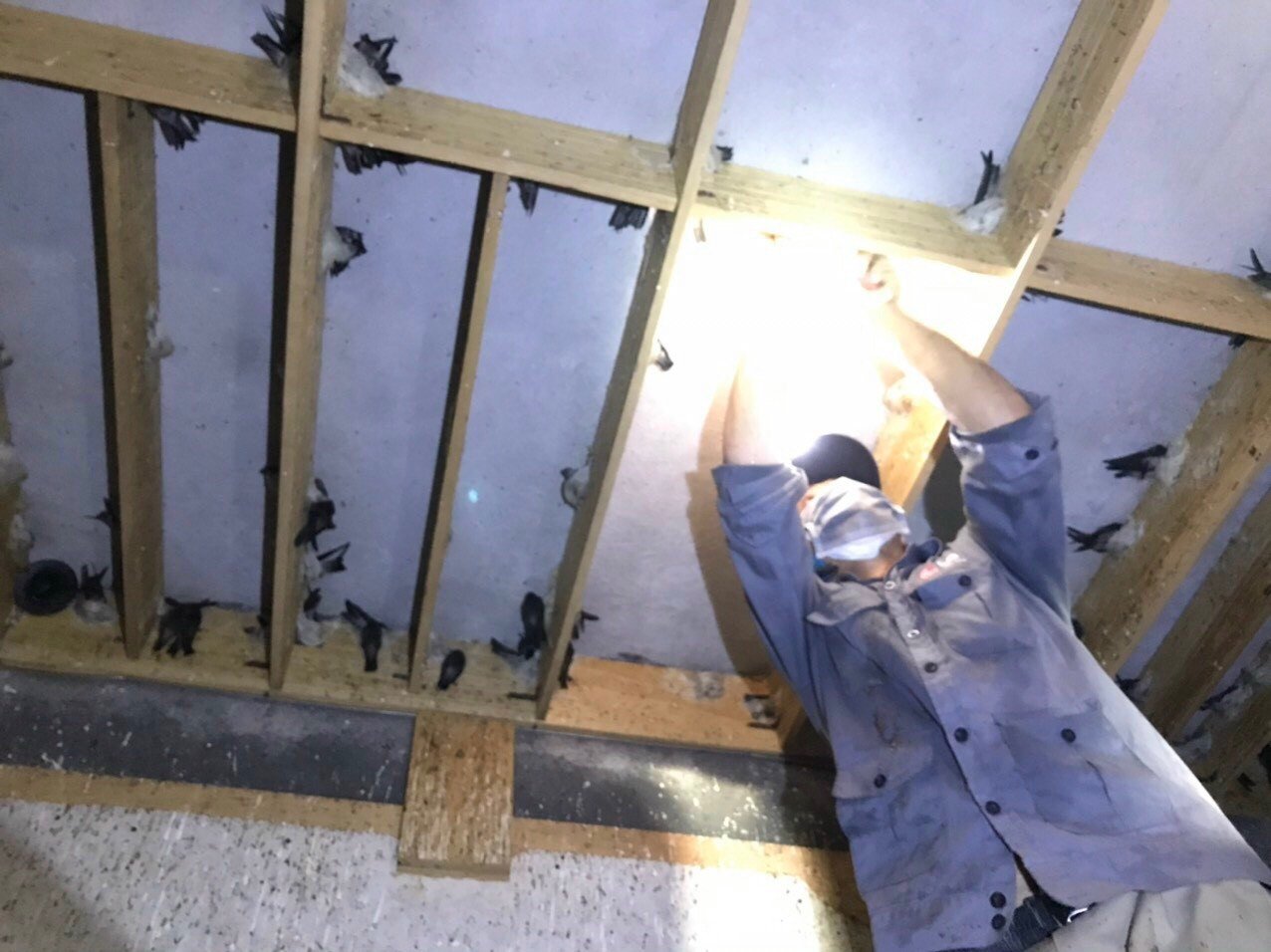May 31, 2025 | 11:55 GMT +7
May 31, 2025 | 11:55 GMT +7
Hotline: 0913.378.918
May 31, 2025 | 11:55 GMT +7
Hotline: 0913.378.918

The number of swiftlet farms in Ninh Thuan province has increased rapidly in recent years. Photo: M.P.
According to Ninh Thuan province's Department of Livestock Prodution and Animal Health, there are currently 594 swiftlet farms in the province including 552 farms constructed before 2019, 21 constructed in 2020, and 8 constructed in 2021. Additionally, Ninh Thuan province saw the construction of 5 new swiftlet farms in 2022, and 8 additional farms in the first six months of 2023. In total, there are approximately 122 farms that combine swiftlet farming with residential housing, and 472 specialized swiftlet farms.
The majority of these swiftlet farms in Ninh Thuan province feature floor areas ranging from 30 square meters to 1,200 square meters, with an average of 250 square meters per house. Accordingly, 224 farms are concentrated in residential areas, and the remaining 370 are built on agricultural land. These swiftlet farms may have one ground level or as many as six.
The majority of swiftlet farms in Ninh Thuan province are located in Phan Rang - Thap Cham city, with 244 farms and an estimated 378,250 swiftlets, which produce over 215,600 nests. Additionally, Ninh Hai district houses 43 farms with approximately 5,350 swiftlets and 3,000 nests; Ninh Son district houses 53 farms with approximately 11,750 swiftlets and 6,700 nests. Ninh Phuoc district houses 215 farms with approximately 224,500 swiftlets and 128,000 nests.
According to Mr. Phan Dinh Thinh, General Director of Ninh Thuan province's Department of Livestock Prodution and Animal Health, the province has a strong swiftlet farming industry, with an estimated population of over 623,000 swiftlets. The annual yield of swiftlet nests is estimated at 2,960 kilograms per year, with nearly 355,200 nests harvested. It takes an average of 120 nests to produce 1 kilogram of swiftlet nests.
The majority of the harvested swiftlet nests originate from farms constructed before 2019. On the other hand, swiftlet farms constructed after 2020 have seen limited harvesting, with some being heavily under-utilized.
There are currently 35 registered processing and trading facilities for swiftlet nests in Ninh Thuan province, including 15 companies and 20 individual businesses. The remaining businesses are primarily involved in the independent farming, harvesting, and trading of swiftlet nests.
However, specialized registration and regulation of swiftlet nest trading and consumption have not been fully developed in Ninh Thuan province. The province is currently reviewing and assessing the issue to develop effective management solutions in the near future.

Swiftlet farms have been thriving across various localities in Ninh Thuan province. Photo: M.P.
According to the Vietnam Swiftlet Association, there has been a rise in illegal swiftlet hunting activities in several provinces throughout the South Central region, including Ninh Thuan province, since the beginning of 2020. In response to this issue, Ninh Thuan province's Department of Agriculture and Rural Development directed the provincial Department of Forest Protection to urgently conduct inspections.
Inspection results revealed that swiftlet hunting traps were found in Binh Quy hamlet, An Long hamlet, Phuoc Thanh hamlet, and An Thanh hamlet in An Hai commune, Phuoc Thuan commune, and Phuoc Vinh commune (Ninh Phuoc district).
According to Mr. Phan Dinh Thinh, the perpetrators involved in the illegal hunting of swiftlets are local residents who set up transparent and wide nets along the flight path of the swiftlets to trap and catch them. These cases of illegal swiftlet hunting were promptly detected and halted by the Ninh Thuan province's forestry sector.
The individuals involved in illegal hunting of swiftlets were required by the local governments to remove the nets. Additionally, they were educated on the need to cease hunting, trapping, and harming swiftlets through any means.
Thanks to early detection, timely prevention and intervention, the number of swiftlets trapped in nets has been marginal. Furthermore, there have been no reports on the trading or killing of swiftlets in Ninh Thuan province.

The annual yield of swiftlet nests in Ninh Thuan province is estimated at approximately 3 tons. Photo: M.P.
Ninh Thuan province's Department of Agriculture and Rural Development will continue to collaborate with relevant departments and agencies to strengthen inspections of illegal swiftlet hunting activities. Organizations or individuals found to be in violation of the laws and regulations related to swiftlet farming, hunting, buying, or transporting within the province, will be strictly dealt with.
Additionally, the province's government will enhance public awareness campaigns regarding the regulations on swiftlet farming, with an emphasis on the prohibition of hunting or luring swiftlets for purposes other than farming, scientific research.
Mr. Phan Dinh Thinh suggests, "With the aim of establishing a legal basis for exporting swiftlet nest products to the Chinese market in compliance with current regulations, we propose the Department of Livestock Production to expedite the issuance of identification numbers for local swiftlet farmers, enhance origin traceability and meet the requirements for export production."
Translated by Nguyen Hai Long

(VAN) Seafood by-products are opening a new path, combining green growth and technological innovation to enhance the industry's value.

(VAN) Mr. Nguyen Thanh Cong, Vice Chairman of the Son La Provincial People's Committee, reflects on Son La’s journey from barren hills to fruitful orchards after a decade of hard work.

(VAN) FAO’s Director-General addresses the 5th Baghdad International Water Conference.
/2025/05/26/1716-4-nongnghiep-191706.jpg)
(VAN) Chain linkages, technological innovation, and raw material zoning are three strategic pillars for the coconut industry to strongly develop and elevate its position on the global agricultural map.
![Advanced mariculture – an inevitable trend: [4] Accompanied by scientists](https://t.ex-cdn.com/nongnghiepmoitruong.vn/608w/files/sohk/2025/05/13/1941-pgsts-vo-van-nha-140958_717.jpg)
(VAN) According to Assoc. Prof. Dr. Vo Van Nha, Director of the RIA III, the development of advanced offshore mariculture is no longer an option but an essential path for Vietnam’s fisheries sector.

(VAN) Vietnam is intensifying the development of mollusk farming areas that meet international standards, aiming for sustainable growth and enhancing its export position in the global seafood market.
![Advanced mariculture – an inevitable trend: [3] Policy-driven momentum](https://t.ex-cdn.com/nongnghiepmoitruong.vn/608w/files/doanhtq/2025/05/21/0104-0616-0348-nuoi-bien-170339_789.jpg)
(VAN) To ensure the success of offshore mariculture that uses advanced technologies, it is essential to establish supportive policies that inspire both individuals and enterprises to invest with confidence.